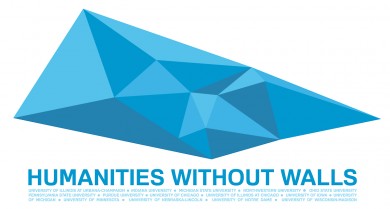Climate-change projects win humanities grants
 Environmentally-focused humanities projects led by University of Illinois at Chicago faculty have been awarded a combined $285,000 in a grant competition.
Environmentally-focused humanities projects led by University of Illinois at Chicago faculty have been awarded a combined $285,000 in a grant competition.
The funding is provided by Humanities Without Walls, a 15-member consortium based at the Illinois Program for Research in the Humanities at the University of Illinois at Urbana-Champaign, and the UIC Institute for the Humanities.
The grants were awarded as part of “The Work of the Humanities in a Changing Climate,” the group’s research challenge featuring cross-institutional collaborations of artists, humanities scholars, and scientists working to develop climate-change projects.
The winning UIC-based projects are:
“Political Ecology as Practice: A Regional Approach to the Anthropocene” – $147,000
In partnership with colleagues at the University of Wisconsin-Madison, Ömür Harmanşah, UIC associate professor of art history, will lead an investigation of the human impact on climate change, the global environmental crisis, and how local ecological problems are experienced in different regions of the world.
Researchers will conduct a multi-site, comparative study of place-based ecological politics through a series of fieldwork initiatives led by humanities and social science faculty and graduate students in collaboration with artists and local activists.
Collaborators at UIC are Molly Doane, associate professor of anthropology; Ralph Cintron, associate professor of Latin American and Latino Studies and English; Beate Geissler, associate professor of art; and David H. Wise, professor of biological sciences and associate director of the Institute for Environmental Science and Policy.
“Garden for a Changing Climate” – $140,000
Hannah Higgins, UIC professor of art history, is principal investigator for the project that will provide a classroom curriculum for student engagement in Chicago Public Schools; support coursework at UIC and the University of Wisconsin-Madison; and present a public program series to educate Chicago residents about the impact of climate change and potential ways to mitigate its damage.
Beginning in April 2018, Gallery 400 will present “Garden for a Changing Climate,” a mobile public art project and interactive event series conceived by artist Jenny Kendler in six community sites throughout Chicago.
Other collaborators include Lorelei Stewart, director of Gallery 400 and UIC lecturer in museum and exhibition studies; Robyn Mericle, UIC doctoral student in art history; and Noah Feinstein of the University of Wisconsin-Madison.
In addition, Jennifer Brier, UIC associate professor of gender and women’s studies and history and director of gender and women’s studies, will be part of the research team for “Transmedia Collage: Histories of Violence and Futures of Health on Chicago’s South Side,” a grant-winning project led by Patrick Jagoda of the University of Chicago.
Humanities Without Walls consortium, which is funded by the Andrew W. Mellon Foundation, aims to create new pathways for collaborative research, teaching and scholarship in the humanities.
